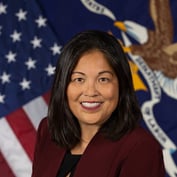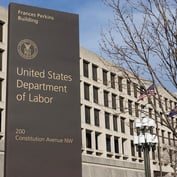What You Need to Know
- The SEC will struggle to reach a 15% advisor exam rate, according to the agency's acting exam director.
- Advisors will have to contend with new Form ADV requirements related to the marketing rule.
- Since January, the SEC has issued 11 rule proposals.
Investment advisors — and the attorneys that represent them — face a torrent of issues in 2022. Since January, the Securities and Exchange Commission has issued 11 new proposals, all while advisors are busy prepping for the Nov. 4 compliance date for the agency’s game-changing marketing rule.
Despite the SEC exam division continuing to struggle to keep pace with exams of investment advisors, industry attorneys see the agency and the Financial Industry Regulatory Authority ramping up exams of firms’ compliance with Regulation Best Interest.
Daniel Kahl, acting director of the SEC Division of Examinations, warned Friday at the Investment Adviser Association’s compliance conference that while the agency’s advisor exam rate reached 16% last year, the division has “squeezed out” its resources.
He questioned whether the regulator could reach a 15% exam rate in 2022. “We’re going to try to target 15%” of firms to examine, he said.
The number of examiners, Kahl reported, “has not materially increased for many years” as the number of RIAs increases, he said, adding that the number of net new advisors reached an all-time high in 2021.
IAA’s 2021 Investment Adviser Industry Snapshot found that the total number of firms registered with the SEC in 2021 hit a record high of 13,880 — an increase of 386 firms, or a 2.9% boost, from 2020. The number is drawn from data reported to the SEC on Form ADV.
Kahl stated at the IAA event, held in Washington on March 3-4, that examiners are still “completely remote” with plans to be back in the office in early June.
When onsite exams will resume, however, remains uncertain. “We’ve been very effective operating remotely,” Kahl said. “We don’t see the need to be aggressive” when it comes to onsite exams.
That said, the exam division is “going to push out” as many Risk Alerts as it can this year, Kahl added.
Reg BI Focus
In 2022, the priority for FINRA in examining BDs’ compliance with Reg BI “is to make sure that written supervisory provisions are, in fact, in place and to foster compliance with the rules,” Sandy Grannum, partner with Faegre Drinker, said on a recent webcast. FINRA also wants to see that BDs “are actually training individuals to make sure that they are capable of complying with the rules, and that there’s adequate disclosures to the public on what it is they’re doing.”
FINRA’s recently released 2022 exam report should serve as a Reg BI guidebook as it provides feedback on what FINRA deemed “faulty” compliance.
Jim Lundy, partner at Faegre Drinker in Chicago, added on the webcast that while Reg BI applies to broker-dealers, the SEC, under Chairman Gary Gensler, “is continuing to scrutinize” the investment advisory industry.
“We’re seeing more and more examinations with alleged violations of Section 206 — the statute that applies the fiduciary standard,” Lundy said. Best interest is “definitely much more aligned than it was historically … We see the term ‘best interest’ expressed under Section 206 findings and deficiency letters and referenced back to the Commission’s guidance that came out with Reg BI” in June 2020.
That commission guidance “talks about ‘best interest,’ while it does not define it, as a requirement under the fiduciary standard,” Lundy continued. “… We’re seeing the examination program aggressively use their tactics to allege findings under Section 206 and talk about ‘best interest.’”
For advisors and broker-dealers “that have not been examined in the last several years, we’re starting to see the examination program request payments back to clients for violations of Section 206 in the deficiency letters.”
SEC Rule Proposals
Karen Barr, president and CEO of IAA, noted during the conference the barrage of SEC proposals that the agency has issued — with short comment periods — since January.
The 11 proposals address such issues as cybersecurity rules for advisors, whistleblower and private fund rules.












 Copyright © 2024 ALM Global, LLC. All Rights Reserved.
Copyright © 2024 ALM Global, LLC. All Rights Reserved.